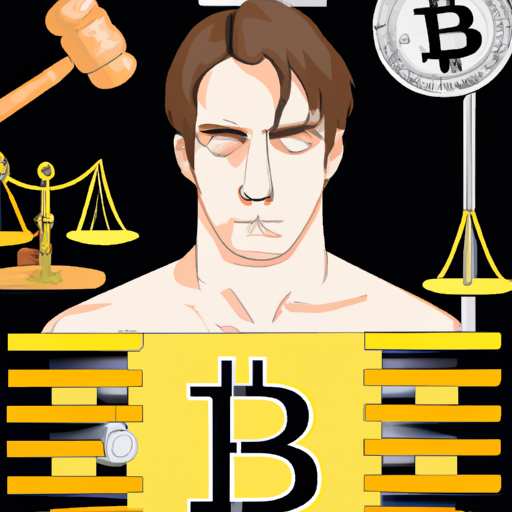10 Years on: Ross Ulbricht’s Impact on Bitcoin and Internet Freedom
It has been a decade since Ross Ulbricht, the mastermind behind Silk Road, was sentenced to life in prison without the possibility of parole. While his arrest marked a turning point in the history of Bitcoin, his story continues to shape the cryptocurrency and internet freedom movements.
A Lightning Rod of Debates
Ulbricht’s case has ignited fierce debates surrounding internet freedom, drug policy, and the criminal justice system. The Silk Road, an underground online marketplace, allowed users to buy and sell various goods using Bitcoin. The platform’s association with illicit activities highlighted both the potential for censorship resistance and the challenges of regulation in the cryptocurrency space.
Despite his incarceration, Ulbricht remains an advocate for justice. He believes his sentence was unfair, given the non-violent nature of his offenses. Supporters argue that his trial was marred by irregularities, including allegations of corrupt agents involved in the investigation.
The Voice from Behind Bars
Ulbricht has not been silent during his time in prison. In his writings, he emphasizes the role of Bitcoin as a symbol of freedom and resistance against government overreach. He reflects on the early days of Bitcoin, where enthusiasts had nothing but a dream and unwavering conviction.
“The early adopters of Bitcoin had no way of knowing what we do now. All they had was a dream, a conviction and enough infectious enthusiasm to bootstrap a digital contrivance into a multi-billion-dollar phenomenon we are only beginning to see the effects of,” Ulbricht wrote.
Ulbricht expresses regret for the negative consequences resulting from his actions but believes that his severe sentence is a deliberate attempt by the government to make an example of him and stifle Bitcoin’s potential for individual liberty.
The Fight for Ulbricht’s Release
The cryptocurrency community continues to rally behind Ulbricht, pushing for a fair review of his case and a reconsideration of his sentence. With Bitcoin gaining mainstream acceptance, his imprisonment serves as a reminder of the ongoing battle for internet freedom, privacy, and responsible use of digital assets.
Supporters have reached out to U.S. presidential candidates known for their pro-Bitcoin stance, such as Democrat nominee Robert F. Kennedy Jr. and Republican hopeful Vivek Ramaswamy. These candidates have shown openness to the cause, offering a glimmer of hope for Ulbricht’s supporters.
A Symbol of the Complex Relationship
As Bitcoin and digital assets continue their march towards broader adoption, Ross Ulbricht’s case serves as a potent symbol of the intricate interplay between technology, regulation, and individual rights. It exemplifies the ongoing struggle for internet freedom and the responsible use of cryptocurrencies. Ulbricht’s story reminds us that the battle is far from over, and that we must continue to advocate for the principles of privacy and personal liberty.
Hot Take: The case of Ross Ulbricht not only raises questions about the extent of punishment for non-violent offenses but also addresses the importance of protecting individual freedoms and privacy in the digital era. While his actions were undoubtedly illegal, the severity of his sentence raises concerns about the potential infringement on personal liberty in the name of law enforcement. As the cryptocurrency landscape evolves, society must balance the need for regulation with upholding the fundamental principles upon which Bitcoin was built. Only through careful and thoughtful consideration of these issues can we navigate the complexities of technology, government, and individual rights.
